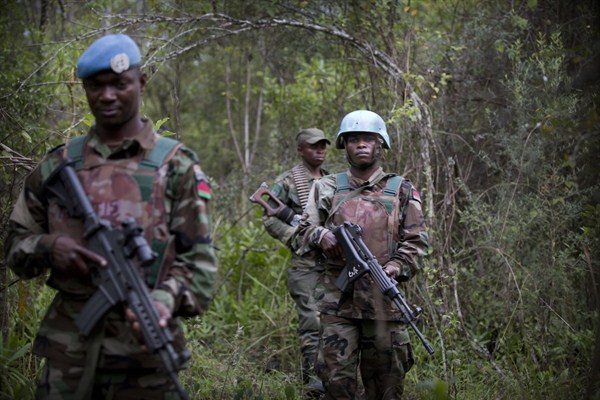There will be a major crisis in the Democratic Republic of Congo (DRC) before the end of 2016, and nobody really knows what to do about it. This is neither an alarmist nor even a particularly contentious statement. Diplomats, United Nations officials and independent analysts agree that trouble is looming over the DRC’s presidential election, which is supposed to take place in November. The constitution bars the sitting president, Joseph Kabila, from running for a third term. However, almost all observers believe he intends to cling onto power, potentially unleashing serious violence.
Nobody can predict exactly how ugly this could get, but the crisis could signal the failure of one of the most ambitious international attempts at stabilization and state-building in the past two decades. The U.N. initially sent peacekeepers to the DRC in 1999 to help the country out of a civil war that claimed hundreds of thousands—by some estimates, millions—of lives. The force eventually expanded to over 20,000 troops and police and is still the largest blue-helmet operation.*
While the U.N. was simultaneously engaged in tricky peacekeeping missions elsewhere, the DRC became its de facto flagship project, similar to the way in which NATO staked its reputation on rebuilding Afghanistan after 2001. Although hardly as geopolitically significant as the Afghan project, rescuing the DRC was certainly internationally fashionable for a while. The European Union sent military missions to bolster the U.N. forces in 2003 and 2006. Donors pumped in funds, and there was a general sense of satisfaction when the U.N. oversaw acceptable national elections in 2006.

